|
It was a sunny but cold day in October. Twenty young men in long, dark habits knelt in the big, roomy church. The melody of the old organ, played by an invisible musician, echoed through the building. That melody was unknown to me. On that day, I believed that every corner of that church and my heart were full of the melody of glory. I was one of the twenty men kneeling near the altar who had received from the hands of a priest the big silver cross. It was attached to a ribbon that was a black as coal. This was the act of my eternal sacrifice to God. In my shaking hands, I held the crucifix of the One to whom I promised to be a member of the Society of the Catholic Apostolate. I promised chastity, poverty, obedience, perseverance, the sharing of resources, and the spirit of service. I remember noticing that it was like a wedding: the melody of that song had some similarity to a wedding song, although it is possible that it was just the melody of my heart... After one year in the priesthood, I was completely immersed in pastoral work. Holy Mass, catechesis, and long lines to the confessional before Christmas and Easter filled me with happiness. Often when having conversations with people, I would ask them who Jesus was for them. Once, when I met a classmate from school, she asked what made me decide to become a priest. I tried to explain to her that it was a calling to follow God and to explain the happiness that I had in my heart. However, the more I tried to explain to her, the more I understood the weakness of my arguments to a non-believer. After that conversation, the question that Jesus made to the apostles “Who do you say that I am?” often appeared in my mind. Who is that One to whom I offered my life in the Pallottine community? I was the assistant to the parish priest near my hometown, and I was also a chaplain in a neuropsychiatric clinic where there were more than 200 men with different mental disabilities. I thought that I was used to the unusual situations that sometimes happened during Holy Mass: interruptions, babies with smiles on their faces, spontaneous and childish simple questions that they asked. However, there were still many things I was not used to, like the young burdened man at the clinic who touched the cross that I sometimes wear and asked me, “Who is that man?” I was a little confused by his question and tried to give him a simple answer—I just said that he was my friend. This answer was enough for the young man, because he understood the concept of friendship. His nurse Anna and caretaker Julia, who suffered with him in his illness, embodied friendship for him. Then I noticed that my answer was not just an answer to his question, but also to my own. “Who do you say that I am?” Friendship—this is one word with which I can describe my consecrated life. Friendship is not easy because it implies relationship, maturation, and a constant internal struggle with selfishness. I have noticed that in arduous times in my life the voice of my Friend can be heard more strongly. I have heard that voice many times throughout my Pallottine life. Maybe it was the voice of that invisible musician who played the melody in my heart while I first held the big silver cross in my hands during my final vows. I know that this voice has been calling me to bring the words of His Gospel to many different people and areas, which sometimes are very dangerous and unpredictable. I believe that—like the melody in that church where I was kneeling near the altar with my confreres—my consecrated life gains new notes, changes, and rhythms each day. It is not possible to change the melody. I just try to hear the voice of the Eternal Master, the invisible musician, for whom I have consecrated my life in the melody of His glory. This year, we celebrate World Day for Consecrated Life on February 2. For more resources to guide you through vocational discernment, please click here. To learn more about St. Vincent Pallotti and Pallottine spirituality, please click here. **This post was originally published on 2/5/2019**
0 Comments
It was a sunny but cold day in October. Twenty young men in long, dark habits knelt in the big, roomy church. The melody of the old organ, played by an invisible musician, echoed through the building. That melody was unknown to me. On that day, I believed that every corner of that church and my heart were full of the melody of glory. I was one of the twenty men kneeling near the altar who had received from the hands of a priest the big silver cross. It was attached to a ribbon that was a black as coal. This was the act of my eternal sacrifice to God. In my shaking hands, I held the crucifix of the One to whom I promised to be a member of the Society of the Catholic Apostolate. I promised chastity, poverty, obedience, perseverance, the sharing of resources, and the spirit of service. I remember noticing that it was like a wedding: the melody of that song had some similarity to a wedding song, although it is possible that it was just the melody of my heart... After one year in the priesthood, I was completely immersed in pastoral work. Holy Mass, catechesis, and long lines to the confessional before Christmas and Easter filled me with happiness. Often when having conversations with people, I would ask them who Jesus was for them. Once, when I met a classmate from school, she asked what made me decide to become a priest. I tried to explain to her that it was a calling to follow God and to explain the happiness that I had in my heart. However, the more I tried to explain to her, the more I understood the weakness of my arguments to a non-believer. After that conversation, the question that Jesus made to the apostles “Who do you say that I am?” often appeared in my mind. Who is that One to whom I offered my life in the Pallottine community? I was the assistant to the parish priest near my hometown, and I was also a chaplain in a neuropsychiatric clinic where there were more than 200 men with different mental disabilities. I thought that I was used to the unusual situations that sometimes happened during Holy Mass: interruptions, babies with smiles on their faces, spontaneous and childish simple questions that they asked. However, there were still many things I was not used to, like the young burdened man at the clinic who touched the cross that I sometimes wear and asked me, “Who is that man?” I was a little confused by his question and tried to give him a simple answer—I just said that he was my friend. This answer was enough for the young man, because he understood the concept of friendship. His nurse Anna and caretaker Julia, who suffered with him in his illness, embodied friendship for him. Then I noticed that my answer was not just an answer to his question, but also to my own. “Who do you say that I am?” Friendship—this is one word with which I can describe my consecrated life. Friendship is not easy because it implies relationship, maturation, and a constant internal struggle with selfishness. I have noticed that in arduous times in my life the voice of my Friend can be heard more strongly. I have heard that voice many times throughout my Pallottine life. Maybe it was the voice of that invisible musician who played the melody in my heart while I first held the big silver cross in my hands during my final vows. I know that this voice has been calling me to bring the words of His Gospel to many different people and areas, which sometimes are very dangerous and unpredictable. I believe that—like the melody in that church where I was kneeling near the altar with my confreres—my consecrated life gains new notes, changes, and rhythms each day. It is not possible to change the melody. I just try to hear the voice of the Eternal Master, the invisible musician, for whom I have consecrated my life in the melody of His glory. This year, we celebrate World Day for Consecrated Life on February 2. For more resources to guide you through vocational discernment, please click here. To learn more about St. Vincent Pallotti and Pallottine spirituality, please click here. “Everything is well when it is done as God wishes.” – St. Vincent Pallotti
In October, there will be a Synod of Bishops devoted to the interconnection between faith and vocational discernment in the lives of young people. When a person in Catholic circles, especially a young person, says that she or he is “discerning a vocation,” usually this means consecrated life or priesthood. More often today, though, it also includes discernment of whether one is called to the vocation of marriage. Over the last two decades, I have had the privilege of accompanying numerous young adults who are discerning their vocation. As they have come to a decision about a life vocation, I have witnessed their marriages, consecrations, and ordinations. During this year alone, many months have been filled with the joy of such events which will continue into the foreseeable future. Such moments bring me great joy as they should for the Church. More so, though, we are called to discern the ways in which we can live our primary vocation, the call to holiness. This call, as the Second Vatican Council taught, is “universal” (Lumen Gentium, c. V) It is what God desires of all human beings, to live in a loving union with God and neighbor that leads to salvation. Pope Francis teaches us in Gaudete et Exsultate that “This holiness to which the Lord calls you will grow through small gestures” (GE, 16). Small gestures lead to larger action through discernment. Is such discernment easy? No. In fact, it is challenging and difficult and can be a cross. But, we are called to take up our cross and follow (Mk 8:34) since no one is called to be a professional discerner. We are called to make choices that are for Christ and witnessed through our love and care for our neighbor. Simply praying, thinking, or talking is not enough. We are challenged to move forward. “It involves striving untrammeled for all that is great, better and more beautiful, while at the same time being concerned for the little things, for each day’s responsibilities and commitments” (GE, 169). May the Charity of Christ urge us on! In God, the Infinite Love, Fr. Frank 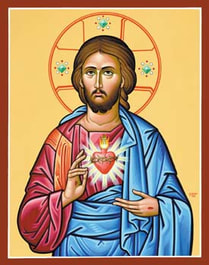 Whenever you think of Christianity, it is next to impossible to overlook the role and importance of love in the story of salvation. God’s love for us is one that is infinitely more enduring than any infatuation or passing attraction. It is one that gives and purifies, sacrifices and yields for the good of another -- again and again and again. God’s love is one that extends through, before, and beyond eternity and is ultimately expressed from Calvary to each and every person, fully, freely, and forever. The Church has dedicated the month of June to a reminder of the depth of God’s love: the devotion to the Sacred Heart of Jesus. In His Most Sacred Heart, we see how absolutely consumed with love God is for us — so much so that He was willing to bear those heinous wounds, false accusations and derisions, and even His death in order to grant salvation for all. Artistic depictions of the Sacred Heart remind us of the torment Christ endured on our behalf: the heart is wrapped in a crown of thorns, pierced, bleeding, and aflame with a cross rising from the tongues of fire. The visible wounds of Christ’s heart reveal His invisible love. Thus, devotion to the Sacred Heart is described as “devotion to the love of Jesus Christ in so far as this love is recalled and symbolically represented to us by His Heart of Flesh.” As creatures that have both soul and body, bodily representations of Christ’s love sometimes touch us in ways that words do not. The Sacred Heart teaches us that authentic love incurs great costs, but it also always gives life. Historically, devotion to the Sacred Heart is believed to have grown from another devotion to Jesus’ body: the Sacred Wounds of Christ from His Passion. Saint Bernard of Clairvaux said that the piercing of Christ’s side revealed His goodness and the charity of His heart for us: “How good and pleasant it is to dwell in the Heart of Jesus! Who is there who does not love a Heart so wounded? Who can refuse a return of love to a Heart so loving?” Other religious and saints, such as Francis of Assisi, have themselves exemplified closeness to the love poured out by Christ’s Five Wounds and Sacred Heart. The devotion as it is most commonly known today is said to have begun with the 1673 appearance of our Lord to St. Margaret Mary Alacoque, a French nun of the Order of the Visitation of Holy Mary. Over a series of visits, Our Lord revealed to St. Margaret Mary the importance of devotion to His Sacred Heart: "Behold the Heart which has so loved men that it has spared nothing, even to exhausting and consuming Itself, in order to testify Its love … But what I feel most keenly is that it is hearts which are consecrated to Me, that treat Me thus. Therefore, I ask of you that the Friday after the Octave of Corpus Christi be set apart for a special Feast to honor My Heart, by communicating on that day, and making reparation to It by a solemn act, in order to make amends for the indignities which It has received during the time It has been exposed on the altars. I promise you that My Heart shall expand Itself to shed in abundance the influence of Its Divine Love upon those who shall thus honor It, and cause It to be honored." In 1856, the Solemnity of the Sacred Heart was officially added to the liturgical calendar — the day before the Memorial of the Immaculate Heart of the Blessed Virgin Mary. The faithful have several options for honoring the Sacred Heart as requested by our Lord:
The Love that Christ continually showers on us should totally consume us. Christ’s death is an infinitely huge debt that we can never repay—but in His infinitely huge capacity to love and be merciful, all our Lord asks in return is our love. As we are invited to share in His Divine Love, we are called to let that love change us to become better disciples and better witnesses. Most of all, let us strive to become authors of great love stories, never ceasing to wonder at the incredible truth that the God of the Universe loves us! The Solemnity of the Most Sacred Heart is also the World Day of Prayer for the Sanctification of Priests. Please pray for the priests in your parish and any other priests who have touched your life! "The questions lurking in human hearts and the real challenges of life can make us feel bewildered, inadequate and hopeless. The Christian mission might appear to be mere utopian illusion or at least something beyond our reach. Yet if we contemplate the risen Jesus walking alongside the disciples of Emmaus (cf. Lk 24:13-15), we can be filled with new confidence" - Pope Francis, Message for 2017 World Day of Prayer for Vocations.
Discerning one's vocation in life is not easy. It is a challenge, particularly if one thinks one is alone. But, we as baptized realize that we are not alone. Jesus Christ is walking with us in the same way in which he walked with the disciples on the road to Emmaus. He accompanies us through the community of faith, the Church. We encounter Christ and are accompanied on our journey in our participation in the Sacraments, through the teachings of our Faith, by the Church's ministers, and in communion with the People of God. In our personal prayer, he is present as well, but we need to quiet ourselves and hear the "tiny whispering sound" as did the Prophet Elijah in the cave ( 1 Kings 19:12). As St. Vincent Pallotti taught in the nineteenth century, so does the Second Vatican Council and the Popes that followed, we are called to be apostles or missionary disciples. We have an apostolic vocation in life. Even those who are contemplative pray not for themselves, but for the whole Church. Whatever our particular vocation - marriage, Consecrated Life, or priesthood - we are all sent by God on mission to our brothers and sisters, witnessing Christ by what we say and do. We are called to accompany others in prayer and action in encountering Christ. Over the last years, I have had the privilege of accompanying many young men and women as they discerned their vocation in life. As each would make her or his choice after a long questioning and search that was sometimes bewildering, a sense of profound peace would come upon them. This is the peace that comes from Christ in and through the Holy Spirit. It is the peace that he has left us as his missionary disciples so that we may go forth in his name! May the Charity of Christ urge us on! The Church celebrates National Vocation Awareness Week this year from November 5-11. According to the USCCB, it is “an annual week-long celebration of the Catholic Church in the United States dedicated to promote vocations to the priesthood, diaconate and consecrated life through prayer and education, and to renew our prayers and support for those who are considering one of these particular vocations.” In order to learn more about vocations and discernment, the Catholic Apostolate Center reached out to men currently in formation and asked them the following three questions: What were you doing before formation? What are you doing now? And what has this transition been like? Below are their answers about the transition from the collegiate atmosphere into formation for the priesthood and/or Consecrated life. What were you doing before formation? Before entering formation in the Society of the Catholic Apostolate, I was a full-time graduate student at the University of Notre Dame in South Bend, Indiana. I completed my doctorate in history, specializing in the religious and medical history of modern France. I was used to a fairly independent and loosely structured life. I owned my own home, studied and taught at the university, and was actively involved in my local community through civic and fraternal organizations. My life was dominated by an irregular schedule, where any time of the day was a good time to research and write my dissertation! What are you doing now? Currently I am in the second year of my novitiate, which is traditionally called the “scholastic” year because members of my community use this year to pursue any remaining college studies before entering a theology program. Luckily, my educational background afforded me the special opportunity to spend this year immersed in ministry at Bishop Eustace Preparatory School, a school owned by the Pallottines. I work a full day in the Christian Ministry Office, helping students develop their service projects and accompanying them on service retreats and projects at local charities and schools. I also substitute teach wherever I might be needed. Currently, I am filling in for a teacher on maternity leave. I teach a full course load of U.S. History, Government, and Criminal Justice classes. Twice a week I also take night courses to learn Italian, which is one of the two official languages of my community, and three nights a week I study selected topics in Pallottine life. In my spare time, when I am not grading papers or preparing lectures, I am working on a new edition of a biography of our founder, St. Vincent Pallotti, and a translation of our history from an Italian original. My day begins and ends with the Eucharist and is anchored by the Liturgy of the Hours, which is a source of strength and mission for me each day. What has this transition been like? As you can see above, I do not lack things to do! It was certainly an adjustment moving from the uncertain schedule of graduate student life to the precise one of a religious novice. It has been a time of growing closer to Jesus Christ and seeing how He acts in my life and sets a special vocational path in front of me. The transition has been one of growing closer to Christ as Apostle of the Eternal Father, learning the unique spirituality of Pallottine life, and how to apply this charism to my own physical, spiritual, intellectual, and apostolic development. Further, the deep sense of companionship and accompaniment by Brother Jim, my Director of Preparatory Formation, has inspired me to enkindle the flame of our charism within my own life. I am able to apply all my skills and talents in academia to my life as a Pallottine novice, and each day I am surprised by the new and creative ways I discover to make our charism alive to others. To learn more about Vocational Discernment, please visit our Vocational Discernment Resource Page.
The Church celebrates National Vocation Awareness Week this year from November 5-11. According to the USCCB, it is “an annual week-long celebration of the Catholic Church in the United States dedicated to promote vocations to the priesthood, diaconate and consecrated life through prayer and education, and to renew our prayers and support for those who are considering one of these particular vocations.” In order to learn more about vocations and discernment, the Catholic Apostolate Center reached out to men currently in formation and asked them the following three questions: What were you doing before formation? What are you doing now? And what has this transition been like? Below are their answers about the transition from the collegiate atmosphere into formation for the priesthood and/or Consecrated life. What were you doing before formation? Before I entered seminary, I attended The Catholic University of America for two years, where I majored in Philosophy. I like to think that I was your average college student. I was a Resident Assistant my sophomore year; I was involved in the Knights of Columbus; I held a few on-campus jobs. I had a close group of friends who would go to daily Mass together, as well pray the rosary and spend time in Washington, D.C. I tried to be as active in college as I could. What are you doing now? I am in “College IV,” which is the equivalent to being a senior, at the Saint John Fisher Seminary program for the Diocese of Bridgeport. This is currently my second year in formation. I am working towards my Bachelor of Arts Degree in Philosophy from Sacred Heart University (SHU). I live with seven other men in the diocesan formation program. Our daily schedule begins with a Holy Hour in the morning, followed by Holy Mass and breakfast. We have classes throughout the day, some at SHU, some at the seminary. In the evening we gather for prayer and dinner. After graduation in May, I will be going to a Major Seminary to begin my four years of Theology Studies. What has this transition been like? Like any major life change, the transition into seminary formation has had its challenges. It was very hard to leave the community I was involved in at CUA. However, seminary is not something you do on your own. I learned the importance of fraternity through my involvement with the CUA Knights, and seminary formation deepened this fraternity. After adjusting to the daily schedule, and better understanding what it really means to give my life for Christ, the transition into seminary became less challenging. I have had no regrets from transferring into seminary in the middle of my undergraduate career. The transition from college into seminary, as hard as it was, taught me how important it is to trust in God’s plan, and how much joy and peace listening to Him will bring to our lives. To learn more about Vocational Discernment, please visit our Vocational Discernment Resource Page.
The Church celebrates National Vocation Awareness Week this year from November 5-11. According to the USCCB, it is “an annual week-long celebration of the Catholic Church in the United States dedicated to promote vocations to the priesthood, diaconate and consecrated life through prayer and education, and to renew our prayers and support for those who are considering one of these particular vocations.” In order to learn more about vocations and discernment, the Catholic Apostolate Center reached out to men currently in formation and asked them the following three questions: What were you doing before formation? What are you doing now? And what has this transition been like? Below are their answers about the transition from the collegiate atmosphere into formation for the priesthood and/or Consecrated life. What were you doing before formation? Besides delaying the inevitable and drinking too much coffee, I was studying Philosophy and Theology as an undergraduate student at The Catholic University of America before entering into formation. I was a Resident Assistant for three years and was involved with the Knights of Columbus Council on campus. I also had a part-time job working in the Liturgy Office at the Basilica of the National Shrine of the Immaculate Conception in D.C. This experience strengthened my desire to serve as a parish priest, and ultimately led me from my status as professional discerner to full-time seminarian. What are you doing now? I am currently studying for my home Diocese of Rockville Centre at Saint Joseph’s Seminary in Yonkers, New York (about 30 minutes north of New York City). It is the major seminary for the Archdiocese of New York and the Dioceses of Brooklyn and Rockville Centre. I am in my first year of Theology studies, which is the beginning of a four-year academic track. What has this transition been like? I have had a very smooth transition into my first year of seminary. Having no background in college seminary or pre-theology has had its own set of challenges, but my undergraduate career at Catholic University proved to be very formative. Life in seminary is a structured vocational program, though it is designed for your benefit. It is a consolation knowing that where the formation faculty leads me will result in spiritual progress and preparedness for priestly ministry. There is amazing freedom that comes in submitting to God’s will and allowing him to supply each day with new excitement and joy. To learn more about Vocational Discernment, please visit our Vocational Discernment Resource Page.
Recently, I experienced the end of a long and stressful month filled with travel. I was in and out of airports and cabs while working late on wonderful projects with talented people. Although I enjoyed the opportunity to share my time and gifts with others, I was exhausted physically and spiritually. The constant movement made maintaining a meaningful prayer life difficult. After coming home from my travels, I have worked hard to get back on track with my personal prayer and grow deeper in my prayer life. As I reflected on my own struggles, I began to think of ways to make a prayer routine easier. Here are some tips I came up with. I hope they help and work for you as well! Disconnect: We live in the 21st century. It is very difficult to totally shut off from the world. We are constantly being pulled away from prayer by the plethora of available information and the digital world. The majority of us are connected through some form (and, more likely, many forms) of technology and social media. Challenging ourselves to step away from the noise is important for cultivating a healthy prayer life. Even Jesus had to take time away from everyday life to pray (see Luke 5:16, Matthew 4:1, Matthew 14:13). Let us learn from Jesus and remove ourselves from the world from time to time, maybe for a weekend retreat or just for a few moments. Make the effort to be alone with Christ. Be Intentional: How often do we squeeze a daily prayer in at the end of a long day? Is prayer usually an afterthought or the core of our spiritual life? Our prayer life can be so much more fruitful if we intentionally set aside some time each day for the Lord. I have only been married for 2 years, but something tells me if I only spoke to my wife a few moments at the end of the day, our marriage wouldn’t be as strong as if we intentionally set aside time to be with each other. Look at your schedule to see where and when you can best include some time for prayer and reflection. That time will become invaluable as you grow in your relationship with Christ. Serve: Sometimes we only think of prayer, or speaking with God, as attending Mass or going to Adoration. Although those are fantastic places to start and continue meeting the Lord, we can also find Christ in our encounters with our brothers and sisters. Look for opportunities to serve at your local parish or diocese. Through these experiences, we have the opportunity to connect with Christ in a new way by helping others. Once a service project or event is completed, do not just put that experience up on a shelf. Reflect on what that experience meant. You will not only learn more about yourself, but also about how Jesus may be calling you to grow in your faith journey. Having a good, meaningful, and joyous prayer life isn’t something unattainable, reserved only for priests and consecrated religious. It is something that we not only we long for, but that is also willed by God. The Lord wants to be in an active relationship with us. Let us be open and active in keeping God in our everyday lives by cultivating a regular prayer life. Questions for Reflection: What are some ways you can incorporate prayer into your daily routine? Is prayer something you squeeze in or is it integral to your daily life? For more information on developing your spiritual life, we invite you to visit our Prayer and Catechesis Resources page by clicking here.
*The blog post below was co-authored by Nicholas and Alyce Shields, who have been married since June 2015. The italicized text was written by Alyce, while the rest was written by Nicholas.
Almost 11 years ago, Alyce and I walked into our first high school class together and the rest was history… just kidding. While I wish it was that easy, living out your vocation is never easy. Although we are each called to a vocation by virtue of our Baptism, discerning that vocation is no mean feat. It takes time, patience, and community. Pope Francis said in his message for the 53rd Day of Prayer for Vocations, “Vocations are born within the Church … Vocations grow within the Church … Vocations are sustained by the Church.” The Body of Christ provides a wonderful example for us of the diversity of our vocations, and our church community is beautiful place in which to discern. Discernment is a very personal journey, yet we can greatly benefit from looking to one another and to those who have made this journey before us for guidance. Not only can we look to our priests and religious, but to our parents and grandparents as well! Discernment is not restricted to the priesthood or religious life, but also includes the call to marriage or consecrated single life! Alyce and I did not enter marriage blindly; we discerned our calling, discussed it with our family, friends, priests, and with each other before we took the next step. Because we discerned our vocation together, we strengthened our faith and developed our relationship with each other while being centered on Christ. What did that discernment look like? While it’s different for many, for us, it took waiting and time. In our four years of dating long-distance, God taught us patience and dependence on him. Nicholas and I learned of God’s faithfulness, that his love and promises are never outdone in generosity. In the many days of waiting, I found myself relying on the hope that if God calls something to be, He will make a way. Additionally, the greatest “I love you” that Nicholas and I would say for each other was this: “I’ll see you in the Eucharist.” This means that as members of the Body of Christ – which is the community of the Church that Nicholas previously mentioned – we are united through Jesus in his physical presence even though we were over a thousand miles apart. We learned that our identities reside in Christ and that our gaze must be fixed on him. This outlook, a relationship centered on Christ, does not just apply to dating and discernment, but also on marriage and family life. We have gotten engaged, survived long-distance, gotten married, are awaiting the birth of our first child, and we are still working to keep our lives centered on Christ. Living our vocation means that day after day, we must see each other in the Eucharist. In both times of joy and sorrow, our marriage has been strengthened through shared prayer and reliance on Christ. When we slack on the effort of making Christ the priority, we find ourselves bitter and sluggish. When we cling to Christ, we are more in tune with each other and find that we really live out the goal of helping each other get to heaven. With Christ, we can serve each other with the truest of loves and find confidence in God’s promises continually being revealed to us. We are so blessed to be journeying towards God together and sharing his love with those we encounter. None of this is easy, but it is necessary and worth it. For inspiration, Alyce and I often look to the Holy Family as a model of how we want our own marriage and family to be. Mary and Joseph had total trust in the Lord and put their lives in His hands. We strive to do this each and every day as we pray together, encourage each other, and serve one another. No matter where you are in your discernment, we encourage you to keep Christ at the center, to pray, and to trust in the Lord. Pope Saint John Paul II put it best, “Love Christ and love the Church! Love Christ as he loves you. Love the Church as Christ loves her. Do not forget that true love sets no conditions; it does not calculate or complain but simply loves.” Alyce Shields is a teacher and Nicholas Shields is a Young Professional in Washington, D.C. They have been married since June 2015. Hallelujah! Praise God in his holy sanctuary; give praise in the mighty dome of heaven. Give praise for his mighty deeds, praise him for his great majesty. Give praise with blasts upon the horn, praise him with harp and lyre. Give praise with tambourines and dance, praise him with strings and pipes. Give praise with crashing cymbals, praise him with sounding cymbals. Let everything that has breath give praise to the LORD! Hallelujah! - Psalm 150 Back in high school, my primary extracurricular activities were band and drama club. I’ll always remember how our band teacher, Mr. Crocken, would begin every concert by reciting Psalm 150. Before any announcements or accolades, any thanks or congratulations, he would acknowledge the one from whom all our gifts and talents flow. Before all else, he gave a gentle but profound reminder of the importance of thanking God for our blessings at all times, especially through music. As one would expect in a Catholic school, we began every meeting, whether a class, club, or team practice, with prayer. Our after-school drama club rehearsals were no different. Concluding prayer with the school’s traditional litany to our three patrons, the drama club also always added Saints Genesius and Cecilia, the patrons of actors and musicians. I’d always wondered why Cecilia was patroness of musicians and, since her feast day is today, I finally investigated. Saint Cecilia, one of the most venerated of the Roman martyrs, is most well known as patroness of musicians. Despite having consecrated her maidenhood to God, she married a man called Valerian. During their nuptial Mass, she sang to God in her heart, asking for an angel to protect her virginity. When Valerian asked his bride for proof that she was protected by an angel, Cecilia sent him to the Appian Way to be baptized. There, he saw the angel and quickly became an evangelist, converting many to the faith before being martyred some time later. Cecilia’s martyrdom soon followed, ministering to the poor even on her deathbed. Since her canonization, Cecilia has been very much defined by that story of her singing on her wedding day. There’s even a musical conservatory in Rome, one of the oldest in the world, named after her. It’s always struck me how music is consistently referred to, particularly in Church circles, as a means by which to glorify and praise God. When I think of the moments when my soul has been most moved, they frequently involve music. Pieces like Handel’s Messiah, Mozart’s Requiem, and especially Schubert’s Ave Maria, move me even to tears more often than not. Why? They are beautiful works of art, to be sure, but the reasons they were written are far deeper. The composers used their craft to elevate the listener closer to God in a way that no other media seems able to match. Pieces of music like those just mentioned seem to take root in people’s hearts in a very profound way. That’s why they’ve been integrated into everyday life over the ages. From the Gregorian Chant used in the Mass, to folk songs sung at table or around the fire, even to modern popular music, the common thread is that humanity is united by that universal language that speaks directly to the heart. In my own life, Handel’s Messiah is very dear to me. We sang it in choir when I was in college, I listen to it every year while trimming the Christmas Tree and “decking the halls”, and I join a group of friends every December 23rd for a sing-along performance at the Kennedy Center in Washington, DC. Something about the piece moves me in a way I can’t really explain. But that’s the beauty of music! St. Cecilia gave thanks to the Lord in her heart and with her voice. This Thanksgiving, as we reflect on the blessings God has bestowed upon us this year, let us follow the example of St. Cecilia and the Psalms and join everything that has breath and praise the Lord. St. Cecilia, pray for us! It was the Second Vatican Council which decreed, "From the very beginning of the church men and women have set about following Christ with greater freedom and imitating him more closely through the practice of the evangelical counsels, each in their own way leading a life dedicated to God." It is on this observation that I write in commemoration of the close of the Year of Consecrated Life, which Pope Francis inaugurated on November 30, 2014 (the First Sunday of Advent) and concluded on February 2, 2016 (the Feast of the Presentation of Jesus in the Temple). Addressing all consecrated people in an Apostolic Letter, His Holiness expressed three aims for this great year: first, “to look to the past with gratitude;” second, “to live the present with passion;” and third, “to embrace the future with hope.” Similarly, he called upon the laity, “who share with them the same ideals, spirit and mission,” and the whole Christian people to become more aware of the gift of consecrated men and women, “heirs of the great saints who have written the history of Christianity.” Growing up, I was blessed to have been taught, mentored, and befriended by a number of consecrated religious, namely the Sisters of the Resurrection and the Lasallian Brothers. When I arrived at The Catholic University of America, however, my exposure to consecrated religious expanded to include the Order of Friars Minor (Franciscans), the Order of Preachers (Dominicans), the Little Sisters of the Poor, the Servant Sisters of Mary Immaculate, and the Pallottines (and their Apostolate Center!), to name a few! As I got to know each of them, I became more aware of the joy and the grace inherent of their living out their respective Order’s charisms and spirituality, be they involving education, service, contemplative prayer, or dogmatic theology. In spite of the differences between each order and the varying reasons each member had for professing, there remains one commonality: desiring to follow Christ and seeking to imitate Him more closely in a life dedicated to God. Of course, there are many ways of doing this— each religious order accomplishes this in accord with its unique spiritual character and gifts— as St. Vincent Pallotti encouraged, “Seek God and you will find God. Seek God in all things and you will find God in all things. Seek God always and you will always find God.” How one discerns entering religious life does not mean one has to force a change in his or her lifestyle; rather, it an acceptance of who one is and surrendering that to the God so loved since Baptism, thereby consecrating him or herself “more intimately to God’s service and to the good of the Church” (CCC 931). In my own discernment, I have found great relief in this understanding— that I can give myself to God as I am in love and He will help me to focus and purify that love in my heart which is to radiate from every action of Christian living. Similarly, the famed Trappist monk Thomas Merton expressed the relationship between discernment and the discerner: Discerning vocation does not mean scrambling toward some prize just beyond my reach but accepting the treasure of true self I already possess. Vocation does not come from a voice “out there” calling me to be something I am not. It comes from a voice “in here” calling me to be the person I was born to be, to fulfill the original selfhood given me at birth by God. As the Year of Consecrated Life concludes, let us remember that it concerns not only consecrated persons but the entire Church! Where would the Church be without the examples set by Saints Francis and Augustine, Ignatius and Dominic, or Vincent Pallotti and (soon-to-be-Saint) Mother Teresa and repeated in their respective Orders? The Church would no doubt be less effective in its charity and evangelization, as Blessed Pope Paul VI observed, “the ‘salt’ of faith would lose its savour in a world undergoing secularization.” Let us then respond to Pope Francis’s call to give thanks for the incredible work done by religious around the world and for their fidelity to their respective charisms while seeking to draw close to them in times of joy and trial and assisting them in their holy endeavors. Finally, let us continue to pray for God to send more numerous vocations among their ranks: may their discernments be a model for our own, that we may echo the words of the great Carmelite Saint Thérèse of Lisieux, “At last I have found my vocation: My vocation is love.” This week, Nov. 1-7, celebrates National Vocation Awareness Week , a time U.S. Catholics dedicate “to promote vocations to the priesthood, diaconate and consecrated life through prayer and education, and to renew our prayers and support for those who are considering one of these particular vocations.” We should always promote vocations, but sometimes we need an explicit reminder! We need more than a day or week; we need a culture. This week is about each of us taking a step toward fostering a culture of religious vocations in the Church. As many priests, sisters, brothers, etc., will tell you, the best way to support and promote religious vocations involves every one of us personally committing to live our own vocation faithfully and joyfully, whether that be in the priesthood, the diaconate, married life, consecrated life, etc. It’s impossible to be truly pro-marriage and be against religious vocations; they harmonize! Discerning and answering a call is our responsibility to the Church as baptized and confirmed members of the Body of Christ. Many young people who came face to face with St. Pope John Paul II would ask him: “What is my vocation!?” He used to say, “You must choose!” How disappointing in the moment, yet what a true and wise response! God endows each person with a unique vocation and graciously calls each to respond with the gift of his or herself. You may be thinking: easier said than done. It’s true; discernment is not always easy, especially when immersed in a consumer culture that frequently substitutes success for faithfulness and material gratification for spiritual wholeness. But discerning a vocation is also not an infinitely hard matter of finding a needle in a haystack. It simply is not true that only God’s “favorites” or the exceptionally smart or good looking end up truly happy. Below are some great practices the Church recommends for anyone discerning a vocation. Visit a Spiritual Director or Mentor One of the most important things you can do to discern and sustain your vocation is develop a relationship with a spiritual director or mentor. They do not necessarily need to be a professional theologian or psychologist; look for someone faithful and joyful in their vocation. Focus on finding someone that can offer practical guidance with whom you will be honest and transparent—someone who will consistently encourage you to pray and grow. If you are considering a religious vocation, it would be helpful to meet with a priest or member of religious life. Make Prayer a Priority Prayer is the essential element of discernment. This is probably not a surprise. It’s the time we lay out all our mixed thoughts and emotions before Jesus and let him reveal his way in our life. You can begin simply by praying: “God, help me to know your will for my life and desire it.” Practice going deeper into praying with the Bible and reflecting on passages from Scripture, sometimes called lectio divina, or try to learn or incorporate some part of the Liturgy of the Hours into your schedule. Cultivate Friendships Solid, faithful friendships go much further when discerning a vocation than having a plethora of worldly or romantic relationships. True friends know our identities are composed of both our weakness and our strengths. I often see my friends as a sort of vocational “litmus test;” they know me well enough to detect when choices or relationships seem in or out of step with my true character or wellbeing. Vocational awareness is a fruit of a culture of friendship, as I tried to suggest here. Develop a Tradition The Catholic faith has many rich, diverse, and time-tested charisms (e.g., Franciscan, Ignatian, Dominican, Carmelite, Pallottine, etc.) that can inspire and nourish vocations to religious life and marriage alike. While it’s great to explore and incorporate the tools of many traditions, try to become fluent in one. Different charisms have a special resonance with different people. Learn Their Story Are you aware of your pastor’s vocation story or the vocation story of any member of religious life around you? What about your own parents, grandparents, and mentors? Maybe it’s simple and straightforward; maybe it’s long and exciting or even difficult. Ask those around you about their own story. A vocations culture lives and grows by these real-life examples. Every story of God’s love is worth sharing. “I was dazzled by a girl I met… I was struck by her beauty, her spirit. I was bowled over for quite a while, she made my head spin.”
Yes, even Pope Francis has experienced falling in love. Much more than just hormones, neurochemicals, emotions, or a pyscho-physical state, love is an ongoing relationship between two people. It is stable, yet grows and is lasting; it offers affection, support, help, and hope (cf. 1 Corinthians 13). If a relationship is not rooted in this love, how can it last? Just as God’s love is total and without end, so must be the love upon which a family is based. In a world where too many settle for an empty version of love and the family unit is under attacksuffering difficulty, it becomes critical that we remember the sacredness of the sacrament of marriage and its purpose as instituted by God. God’s first command to Adam and Eve was to “be fruitful and multiply” (Genesis 1:28). He had not joined our first parents solely for their own benefit or pleasure. Their every act in God’s new creation was to glory and praise Him. Similarly, a man and a woman do not enter into a marriage for their own happiness, but to “love and honor” each other “in good times and in bad… all the days of [their] life.” The couple reflects God’s bearing fruit in their lives, a continuous sign of God’s Power in the world. Everything they do, be it chores, budgeting, cooking, or relaxing, whether separately or together, is a living out of their sacrament— even the smallest acts in the life of a married couple have power hidden within them to make them holy. As married life is the ground of holiness, love is the seed planted by God. Life, together with its agonies and joys, pain and sacrifices, frustrations and tensions, moments of exultation and despair, all act as the rain and sun, thunder and lightning on a young sprout. Of course, disagreements are a normal part of the married lifestyle as well as the human condition. No one is perfect but the faults and weaknesses of each one are compensated for by the other’s virtues. Each possesses what the other lacks. Rather than causing a rift between the two, this results in a loving dependence on each other for spiritual growth and transformation. By forming a habit of looking at each other in a sacramental way— seeing the beauty of God in each other’s souls and seeking to enhance that beauty by building up each other— a married couple reflects God’s blessings and love. The Catechism of the Catholic Church acknowledges this by making no distinction between the roles of the man and woman in the family (see CCC 2221-2231). Rather, both are called to provide the good example and instruction of both academic reason and moral and spiritual formation to their offspring, who in turn contribute to the growth in holiness of the parents (see CCC 2227). Being married to one another, the man and his wife are entrusted with the welfare of the family— woe to those who neglect this responsibility (see 1 Timothy 5:8)! The purpose of raising of a family is not to give glory to oneself but to selflessly assist each other in reaching the Kingdom of God. This is no easy task, as it is a great challenge to devote one’s life to those around him/her! To do this requires great love, the strongest bonding force, and we are reminded of this in a reading commonly used in weddings: Husbands, love your wives, just as Christ also loved the church and gave Himself up for her, so that He might sanctify her, having cleansed her by the washing of water with the word, that He might present to Himself the church in all her glory, having no spot or wrinkle or any such thing; but that she would be holy and blameless. So husbands ought also to love their own wives as their own bodies. He who loves his own wife loves himself; for no one ever hated his own flesh, but nourishes and cherishes it, just as Christ also does the church, because we are members of His body. “For this reason a man shall leave his father and mother and shall be joined to his wife, and the two shall become one flesh.” This mystery is great; but I am speaking with reference to Christ and the church. Nevertheless, each individual among you also is to love his own wife even as himself, and the wife must see to it that she respects her husband. (Ephesians 5:25-33) Finally, Matrimony responds to a specific vocation and must be remembered as sacred. It is a consecration: the man and woman are consecrated in their love. The spouses, then, are entrusted with a mission, so that by starting with the simple ordinary things of life they may make visible and known the love with which Christ loves His Church— that is continuing to give His life for her in fidelity and service. In spite of the difficulties experienced by married couples, the important thing to remember is the nurturing of their bond with God, Who is the foundation of and the cause of joy in the marital bond. Pope Francis, though he ultimately gave himself to the ultimate Spouse, offers these words of advice for preserving “what God has joined, [and] men must not divide”: There are three words that always need to be said, three words that need to be said at home: may I, thank you, and sorry. The three magic words. May I: so as not to be intrusive in the life of the spouses. May I, but how does it seem to you? May I, please allow me. Thank you: to thank one’s spouse; thank you for what you did for me, thank you for this. That beauty of giving thanks! And since we all make mistakes, that other word which is a bit hard to say but which needs to be said: sorry. Please, thank you, and sorry. With these three words, with the prayer of the husband for the wife and vice versa, by always making peace before the day comes to an end, marriage will go forward. The three magic words, prayer and always making peace. Thomas Wong is an undergraduate at The Catholic University of America in Washington, D.C. It is the Year of Consecrated Life, proclaimed by Pope Francis and begun on November 30, 2014. It is actually more than a year … extending until February 2, 2016! In 1997, Pope John Paul II instituted February 2nd as World Day for Consecrated Life, which is attached to the Feast of the Presentation of Jesus in the Temple.
This year is to be along the lines of the Year of the Priest a few years ago or the Year of Faith of more recent memory – a once-in-a-lifetime kind of thing, this makes it pretty exciting! In Pope Francis’ video message that was viewed at the Vigil to begin the Year of Consecrated Life, he set the stage, “My first words, on this occasion, are of gratitude to the Lord for the precious gift of consecrated life to the Church and to the world. May this Year of Consecrated Life be an occasion for all members of the People of God to thank the Lord, from whom every good comes, for the gift of consecrated life, appreciating it appropriately.” It is the Year OF Consecrated Life and FOR the whole Church. Much of the content connected with this celebratory Year is directed to Consecrated persons, but that doesn’t mean there isn’t something in it for everyone. Since it is the season when we might start thinking about making New Year’s resolutions, I thought the three “aims” of the Year of Consecrated Life might give us food for thought. Pope Francis issued a letter – his full message – for the Year, issued on November 29, 2014, the eve of the Year and directed to his “Brothers and Sisters in Consecrated Life.” (If you’re interested in reading the whole thing, you can find it here.) The first aim of the Year of Consecrated life “is to look at the past with gratitude.” (Introduction) In a couple of weeks we will start to see all of the “year in review” programs and news captions. Do we have our own manner of reviewing our year or several years? Do I tend to focus on my mistakes or bad things that happened? Pope Francis starts us off with the disposition of gratitude as we look back. He invites Consecrated persons to claim the richness of their Institute’s history, charism, and action of the Spirit which brings us to the point where we are today. This is a valuable activity because, as Pope Francis explains, “Recounting our history is essential for preserving our identity, for strengthening our unity as a family and our common sense of belonging. More than an exercise in archaeology or the cultivation of mere nostalgia, it calls for following in the footsteps of past generations in order to grasp the high ideals, and the vision and values which inspired them, beginning with the founders and foundresses and the first communities.” Advent calls us to the same kind of remembering. In the readings of last Sunday, Peter asks us “what sort of person ought you to be?” Looking at our past can help remind us of our goals, values, and ideal, and recognize how we live consistently with this vision and where we might do better. The second aim of the Year of Consecrated Life gives us some concrete follow-through from the first aim: “This Year also calls us to live the present with passion. Grateful remembrance of the past leads us, as we listen attentively to what the Holy Spirit is saying to the Church today, to implement ever more fully the essential aspects of our consecrated life.” Recalling those things most important to me, the things innate to my identity, I can claim them as my own (again or for the first time) and live out of them, anew, with passion! The challenge to Consecrated persons is no less the same for all believers. “For the various founders and foundresses, the Gospel was the absolute rule, whereas every other rule was meant merely to be an expression of the Gospel and a means of living the Gospel to the full…. The creativity of charity is boundless; it is able to find countless new ways of bringing the newness of the Gospel to every culture and every corner of society.” Does this fit into our plan for the New Year? It is a nice idea, but what does it look like? Pope Francis continues, “Living the present with passion means becoming “experts in communion,”… In a polarized society, where different cultures experience difficulty in living alongside one another, where the powerless encounter oppression, where inequality abounds, we are called to offer a concrete model of community which, by acknowledging the dignity of each person and sharing our respective gifts, makes it possible to live as brothers and sisters….So, be men and women of communion! Have the courage to be present in the midst of conflict and tension, as a credible sign of the presence of the Spirit who inspires in human hearts a passion for all to be one (cf. Jn 17:21).” As in all things Catholic, there are never two without three! The third aim should come as no surprise: to embrace the future with hope. Hope for the future makes the past both meaningful and bearable, and the passion for the present possible. This is not meant to be a wishful-thinking hope, but a leap of faith. How can I embrace that which is not yet here? Pope Francis explains, “This hope is not based on statistics or accomplishments, but on the One in whom we have put our trust (cf. 2 Tim 1:2), the One for whom “nothing is impossible” (Lk 1:37). This is the hope which does not disappoint; it is the hope which enables consecrated life to keep writing its great history well into the future. It is to that future that we must always look, conscious that the Holy Spirit spurs us on so that he can still do great things with us.” How am I writing my own history? Can I trust in the God for whom all things are possible? If I resolve to the live the present with passion, can I add that next layer of commitment to embrace the future with hope? The Year of Consecrated Life is just beginning; may the blessings and graces of this Year be enjoyed by you and all People of Good Will! Sr. Kelly Connors, pm, teaches Canon Law for Saint Joseph’s College Online and is member of the Sisters of the Presentation of Mary. This blog post was first published on October 26th on the St. Joseph’s College of Maine Theology Faculty Blog. Click here to learn more about our cooperative alliance with St. Joseph’s College Online |
Details
Archives
July 2024
Categories
All
|
About |
Media |
© COPYRIGHT 2024 | ALL RIGHTS RESERVED

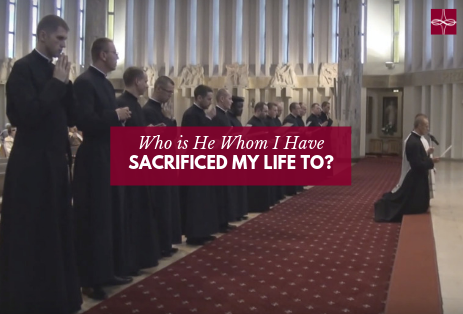
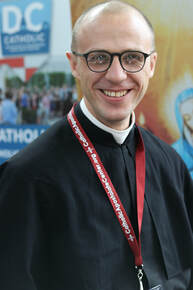
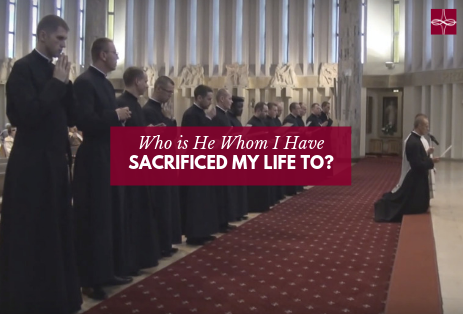
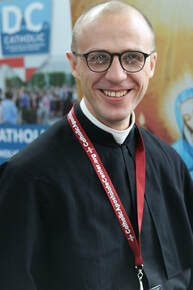
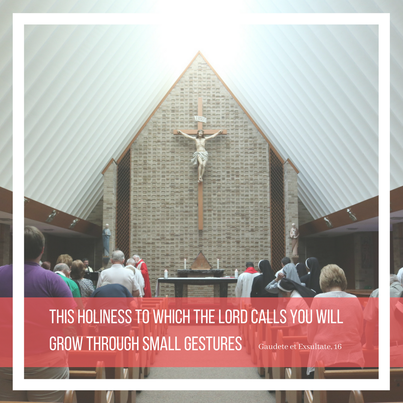
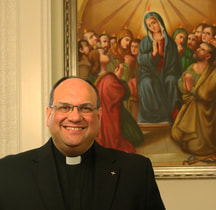
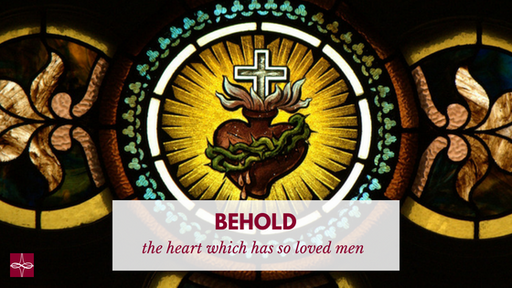

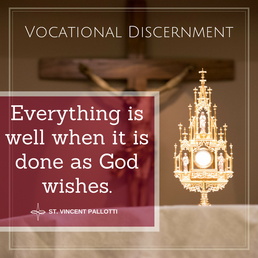
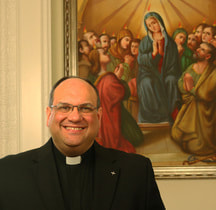
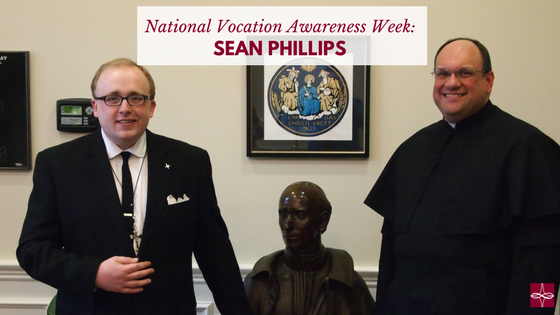
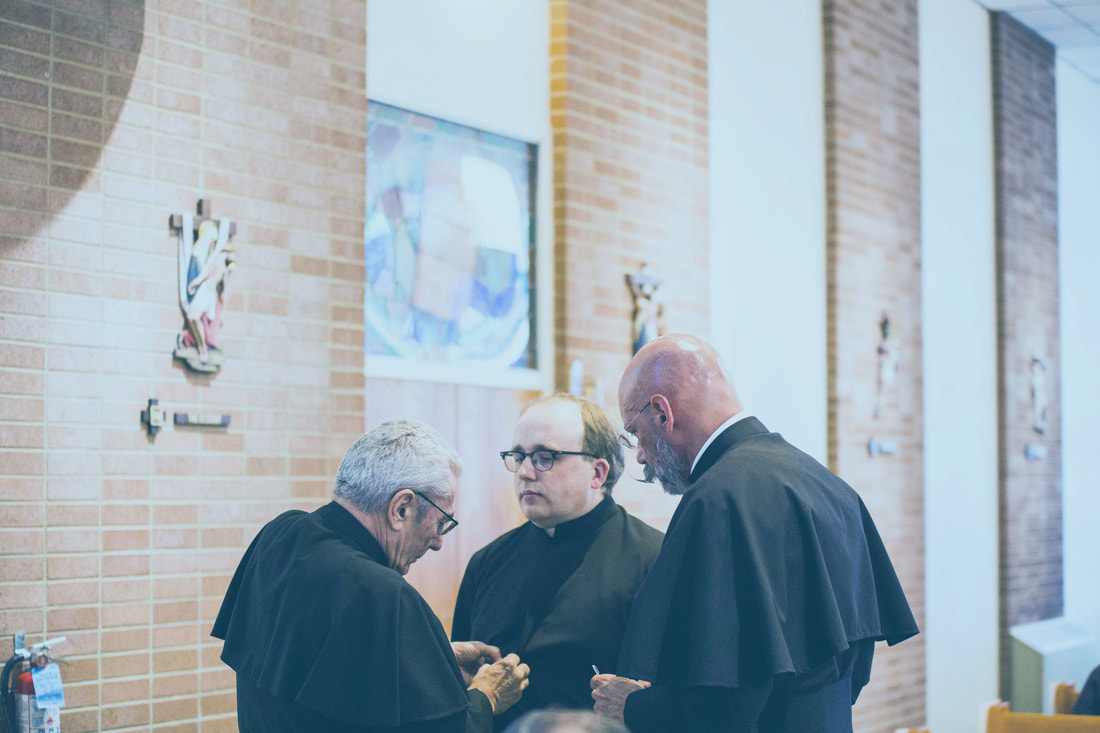

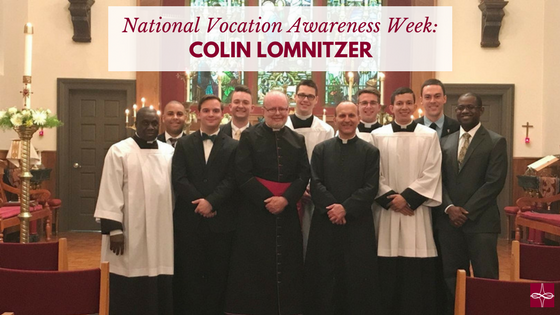
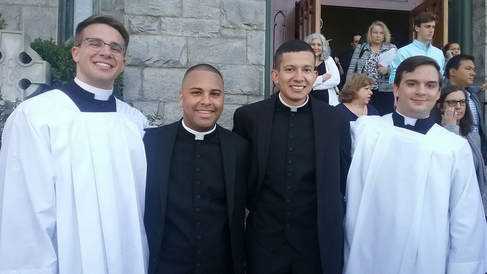
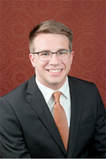
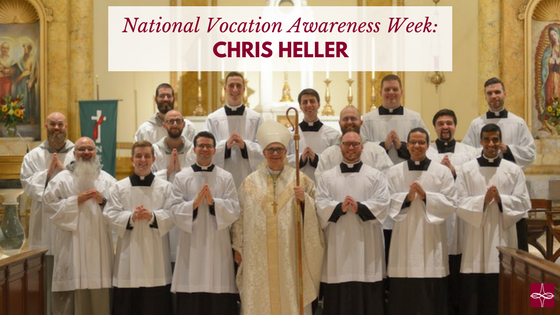
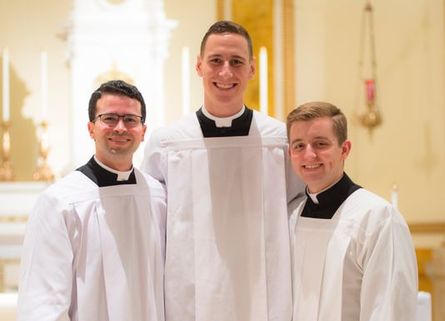
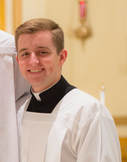
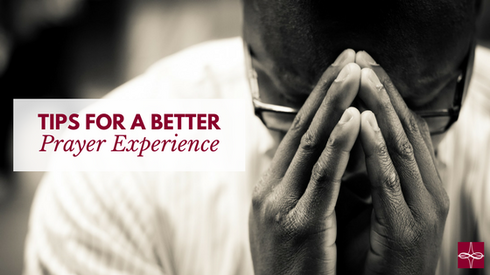

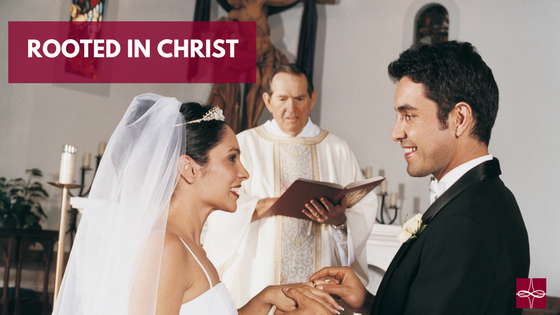
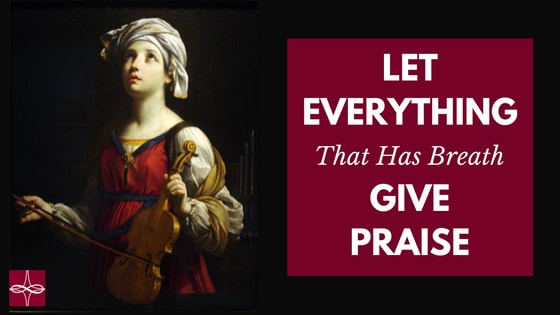
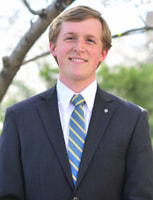
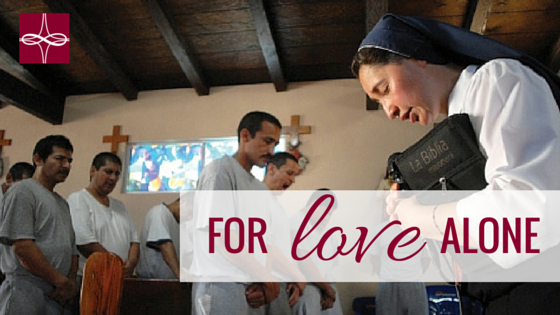
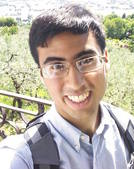
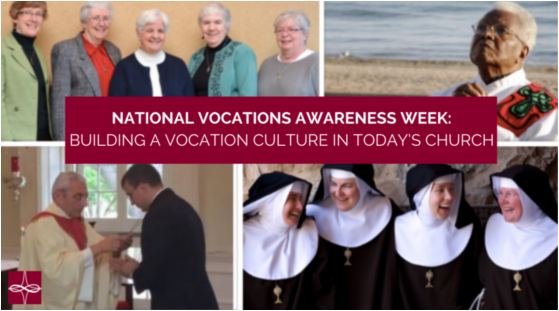


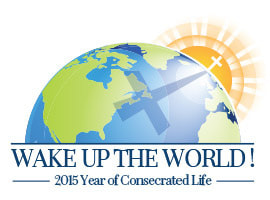
 RSS Feed
RSS Feed